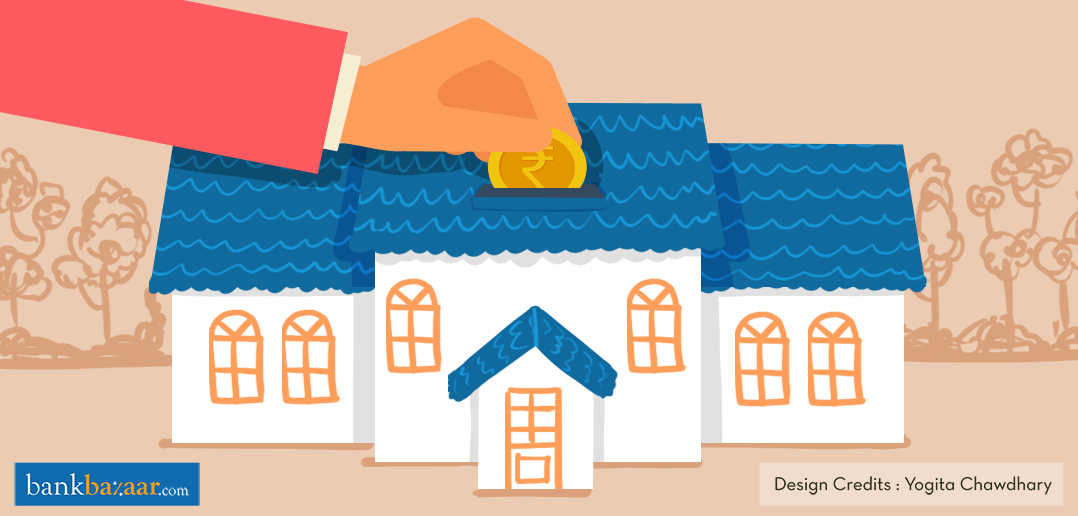Home Loan interest rates are at an all-time low now (starting at 6.70%). While this might tempt you to apply for one, consider these questions before you take the plunge.
 With Home Loan interest rates at never-before levels, there’s no escaping the feeling that your dream home may be inching closer to reality, but there are a whole lot of questions you need to ask yourself and consider before you take the leap.
With Home Loan interest rates at never-before levels, there’s no escaping the feeling that your dream home may be inching closer to reality, but there are a whole lot of questions you need to ask yourself and consider before you take the leap.
A big-ticket loan like a Home Loan is a commitment that will demand at least 15 years of your life. It’s a financial liability that doesn’t come cheap and even a small mistake in the beginning can cost you big in terms of determining your eligibility for future loans and may put at risk your other financial commitments.
This is why you need to ask yourself the following questions before you apply for one because of falling interest rates:
1. Decide If You Want The Home Or The Home Loan:
You may have made up your mind about a house, but before signing on the dotted line, have you checked if your bank will sanction the loan? Do you have enough funds to make the down payment if the seller wants it by a certain time frame? If you’re planning to finance your purchase, find out all details that you possibly can about your loan. So, prior to looking for the right house, research your options and check with multiple lenders; check your Credit Score; find out about the loan size you’re eligible for, charges and fees that the bank levies and if there are any prepayment clauses involved. This will help you estimate how much money you will need at hand.
Additional Reading: 5 Work-From-Home Essentials
2. Is Your Job Stable?
Given the present circumstances, there is hardly any company that has weathered this crisis without announcing pay cuts, furloughs or layoff for its employees. In this scenario, is your job safe? Before taking on a commitment like a Home Loan, you need to be absolutely sure that your industry/sector is safe from these uncertainties and that your salary is secure. Servicing a large EMI will be quite difficult if you’re expecting a pay cut or downsizing in the company. Remember that you will have to service these EMIs for a long duration: at least 15 years. Defaulting on EMI payments will not only attract harsh penalties from the bank but it will also pull down your Credit Score.
Additional Reading: End Of Moratarium | Credit Card Management Tips
3. Do You Have Enough Funds For Down Payment?
As per RBI guidelines, banks and NBFCs can approve a maximum of 80% of the property value as Home Loan. This means the borrower has to pay for the remaining 20% out of their own pocket. In fact, some banks may even ask for a higher percentage of the down payment. Add to this other expenses like registration, processing fee, stamp duty etc. and the amount you have to pay upfront will end up being much higher. If you have investments that were geared towards funding your down payment and have suffered economic losses owing to market volatility, it’s best you put off the purchase until you’ve saved enough instead of taking a bigger loan. The bigger the loan, the higher the interest portion you repay even if the rate is low.
Additional Reading: How A Pandemic Has Managed To Bring Gender Balance To Some Indian Households
4. Are You Prepared For Financial Emergencies?
Now more than ever, it’s of paramount important that you consider this question. Before taking a big-ticket Home Loan, ask yourself if you’re prepared for all kinds of financial emergencies – job loss, paycut, death or disability. You may not be able to service the EMIs owing to any of these reasons. Have some amount earmarked as emergency corpus that will help you tide over this kind of a situation in the future. This should be separate from your regular contingency corpus.
Additional Reading: Tips For Talking To Your Parents About Managing Their Finances
5. Is Your Spouse A Co-Borrower And Co-Owner?
You consider including your wife as the primary loan applicant if she is earning since women are offered lower interest rates than men. Besides, having your spouse as a co-owner and co-applicant increases the tax benefit on account of principal and interest repayment. Under Section 24B, both spouses can claim tax benefit of up to Rs. 2 lakh each on interest payment in case of a self-occupied house, and under Section 80C, of up to Rs. 1.5 lakh each on principal repayment.
Before jumping to make decisions about your future home during this time, assess your financial condition carefully. Remember a Home Loan is a long-term commitment and you will need to weigh in on a whole lot of factors and not just low interest rates to come to a decision.